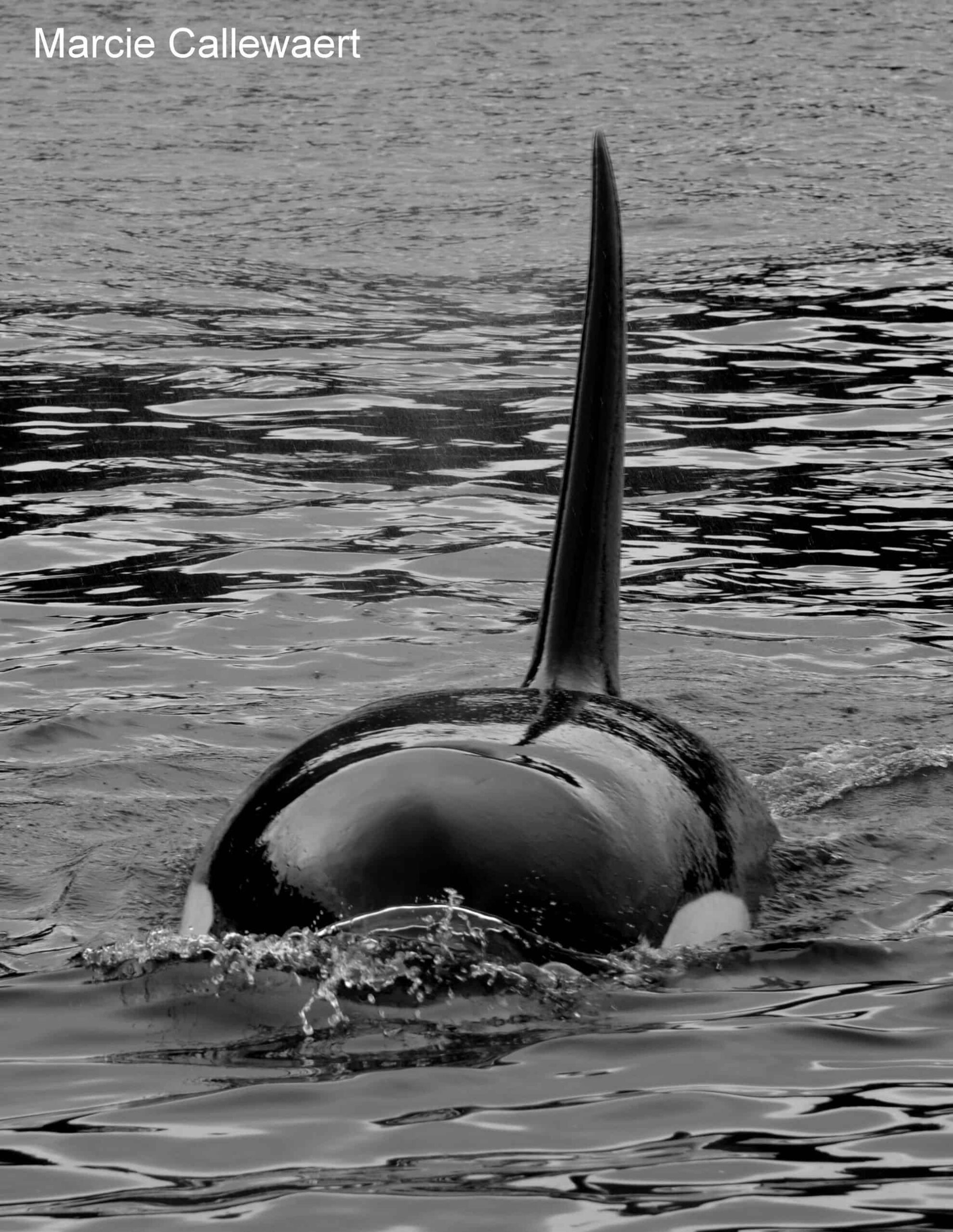
Pacific Whale Watch Association The Facts and Our Focus
• We are 100% focused on the health of the whales and science-based solutions that best support their current and future well-being.
• We have put together a science-based vessel management plan with input from leading experts on the subject of acoustics and SRKW behavior. The goal is to accomplish a “near zero” acoustic footprint of vessels in the vicinity of SRKW, and science has shown that this will offer more benefits to the SRKWs than suggested approaches of moving vessels further away.
• Research has shown that the top driver of noise is vessel speed.
• Creating go-slow zones that apply to all small vessels would be a science-based action that reduces noise exposure for SRKWs, expanding the volume of water they can search for salmon. Vessels that comply with go-slow zones’ rules would expose whales to less noise than distant non-whale watching vessels.
• When viewing wildlife, whale watch boats operate at a go-slow speed that’s at the ambient noise level of rainfall, and one of the key findings from the ECHO project is that there was a significant reduction in sound levels when boats are conducting whale watching activities at slow speeds of 7 knots.
• The whale watch industry has led in educating boaters and warning recreational vessels when to slow down for years, having a net positive effect when it comes to noise reduction, and this is how go-slow zones are best implemented.
• Over 90% of SRKW sightings to researchers and enforcement flow from the PWWA.
• With the SRKWs spending less time in Haro Strait and the Salish Sea, the Center for Whale Research and other scientists/researchers greatly depend on our sightings data for its ongoing sightings database. Without our data, this work will be negatively impacted.
• Other whale species are thriving in the exact same ecosystem and soundscape of the SRKWs: 2018 was a record year for Bigg’s killer whale sightings, with more than 400 photo-identified individual Humpbacks were spotted in the Salish Sea. Large numbers of Minke Whales, Grey Whales and even Harbour Porpoises are being seen in the waters.
• We are ecotourists who support, individually and together, conservation efforts and empower guests to join them in these efforts.
• Whale watching serves as an educational and conservational tool, and scientists like Dr. David Bain and Ken Balcomb agree that whale watching tours are a net benefit to the health of the whales and wildlife in the Salish Sea.
• Whale watching boats also serve as stewards on the water, modelling best practices, alerting other vessels on the water when whales are in the area, and urging those vessels to slow down.

